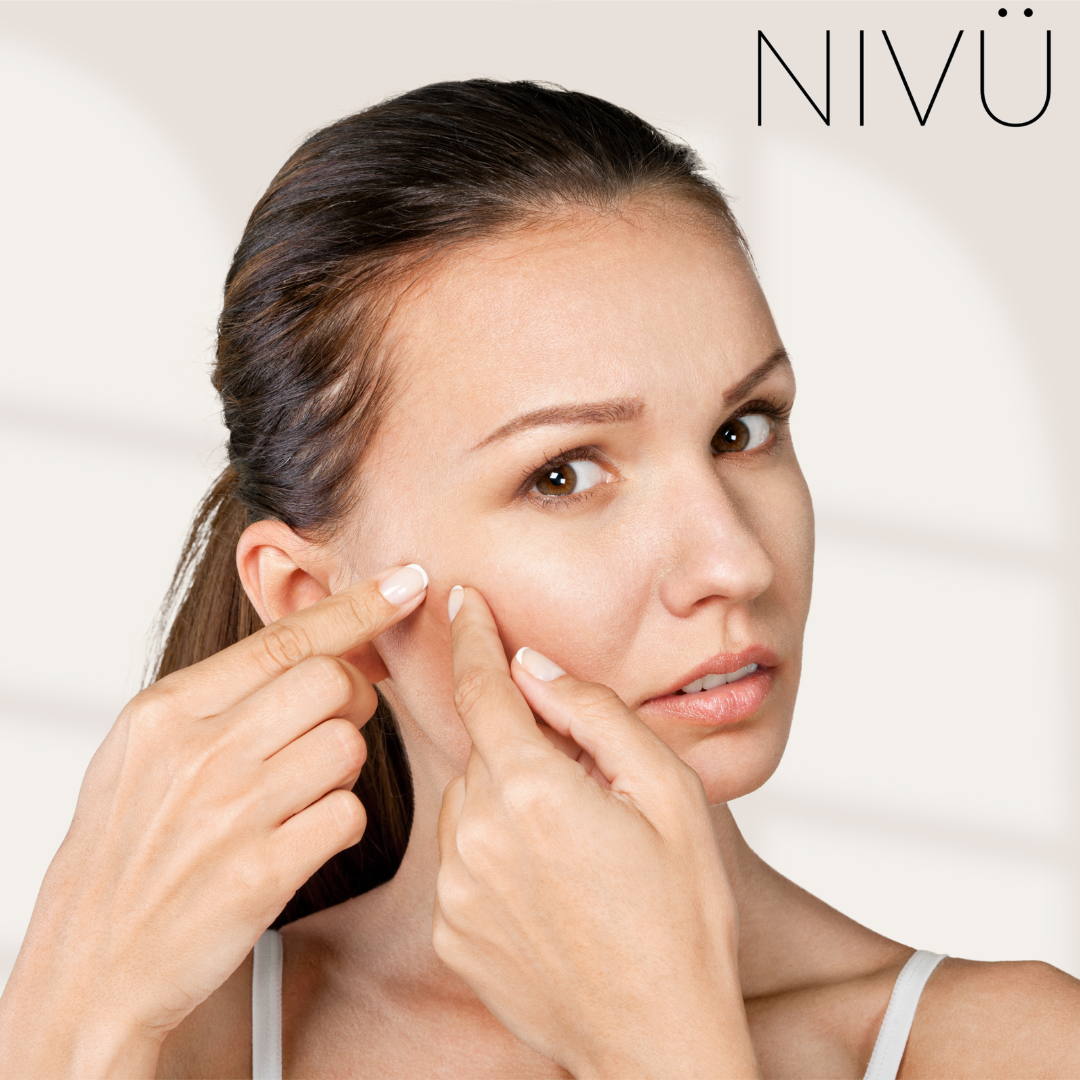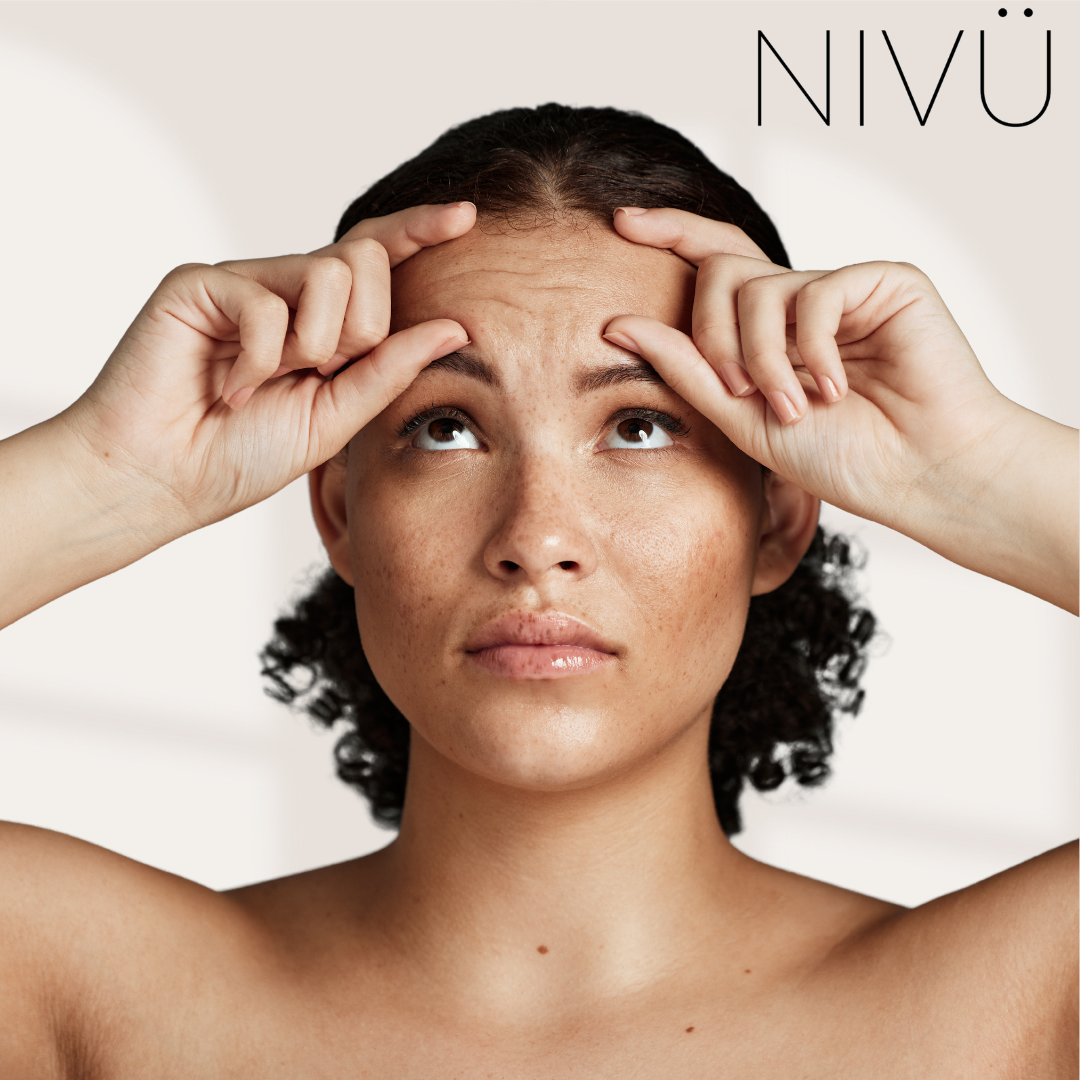WHAT IS YOUR SKIN TYPE
Skin type refers to the natural characteristics of your skin, determined by factors like genetics, oil production, and moisture retention. The main skin types are normal, oily, dry, combination, and sensitive. Each type has unique needs: oily skin tends to produce excess sebum, dry skin lacks hydration, combination skin is a mix of oily and dry areas, sensitive skin reacts easily to products, and normal skin is balanced. Understanding your skin type helps you choose the right skincare products and maintain a healthy complexion.

THIS IS NIVU
DRY SKIN
What is Dry Skin?
Dry skin lacks moisture and natural oils, often feeling tight, rough, or flaky. It can be prone to irritation and appear dull or ashy.
Do You Have Dry Skin? Answer These Questions:
- Does your skin feel tight or uncomfortable after washing?
- Do you notice flakiness or rough patches on your skin?
- Does your skin feel itchy or irritated, especially in cold weather?
- Do fine lines appear more pronounced due to lack of moisture?
- Does your skin absorb moisturizers quickly but still feel dry?
If you answered "yes" to all, you likely have dry skin.

THIS IS NIVU
OILY SKIN
What is Oily Skin?
Oily skin produces excess sebum, leading to a shiny appearance and a tendency for clogged pores, blackheads, and acne.
Do You Have Oily Skin? Answer These Questions:
- Does your skin look shiny, especially in the T-zone (forehead, nose, chin)?
- Do you often experience clogged pores, blackheads, or acne?
- Does your makeup slide off quickly during the day?
- Do you notice enlarged or visible pores on your face?
- Does your skin feel greasy even after cleansing?
If you answered "yes" to all, you likely have oily skin.

THIS IS NIVU
SENSITIVE SKIN
What is Sensitive Skin?
Sensitive skin is easily irritated and reacts to certain products, environmental factors, or weather changes. It may appear red, itchy, or feel tight.
Do You Have Sensitive Skin? Answer These Questions:
- Does your skin frequently react to skincare products or cosmetics with redness or stinging?
- Do environmental factors like wind, heat, or cold cause irritation or discomfort?
- Does your skin often feel itchy, tight, or inflamed?
- Do you experience redness, rashes, or blotchiness after using certain products?
- Do you avoid trying new skincare products for fear of a reaction?
If you answered "yes" to all, you likely have sensitive skin.

THIS IS NIVU
AGEING SKIN
What is Aging Skin?
Aging skin shows visible signs of reduced elasticity, fine lines, wrinkles, and uneven tone due to the natural decline in collagen, hydration, and skin cell turnover over time.
Do You Have Aging Skin? Answer These Questions:
- Do you notice fine lines or wrinkles, especially around your eyes or mouth?
- Has your skin lost firmness or elasticity, appearing saggy or less plump?
- Do you have uneven skin tone, age spots, or sun damage?
- Does your skin feel drier or thinner than it used to?
- Are skincare products less effective in maintaining a youthful glow compared to before?
If you answered "yes" to all, you likely have aging skin.

